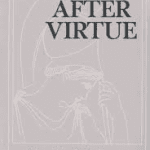Thousands, tens of thousands of tragedies in Japan. What does one say in the face of that? News reporters say the same worn-out phrases—"looks like a war zone," "total destruction"—because they, at the scene, have nothing else to say. Words fail. What could I say from thousands of miles away that would be any less worn out?
Descriptively I can say nothing more. But I can pray. These events remind us of the necessity and power of prayer. I can also mourn with those who mourn (Mosiah 18:9). The gift of mourning together and the strength it offers both to those who first mourn and to those who mourn with them is important to remember.
I can offer comfort—and in my case, that means money to those doing humanitarian work. Going to Japan as a volunteer would be a dramatic gesture, but since I have no medical nor rescue skills and don't speak Japanese, that is probably all that it would be, self-congratulatory drama. So, like perhaps the majority who will read this, the best comfort—"strength" if we recognize the roots of the word—that I can offer is a cash contribution to those who are in a position to use that cash for good.
American Jewish Joint Distribution Center
Mormons believe that God has mourned not only for us (Moses 7:28-33), but with us (Alma 7:11-12). The necessity of mourning with others comes as part of the imitation of God. So does the necessity of offering comfort or strength.
At this time there may be no better way to stand as a witness of God than to mourn with our brothers and sisters in Japan and to offer as much comfort—money—as we can afford. Mourning, prayer, and (for most of us) money, those are what it means now to be among the children of God.
3/17/2011 4:00:00 AM





